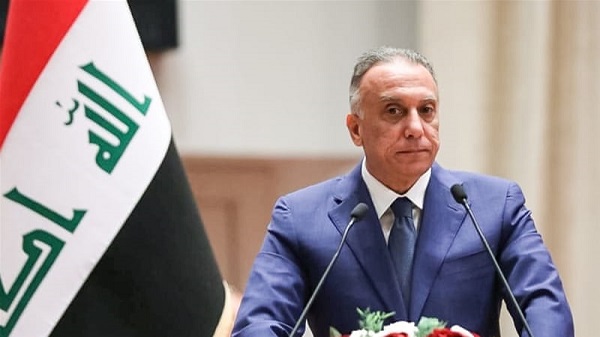Alwaght- The visit to Iran of the Iraqi Prime Minister Mostafa al-Kadhimi on July 21 is still a topic of media debates and analyses after a week. But what is being disregarded here is the cancelation of his scheduled visit to Saudi Arabia. He was planned to visit Saudi Arabia on July 20 as a first foreign trip since the assumption of office in May and the next day fly to Iran as the next destination.
However, only several hours before the visit to Riyadh, reports said that al-Kadhimi visit was delayed as the Saudi King Salman bin Abdulaziz was admitted to hospital for medical checks.
Was the hospitalization of the Saudi monarch the real reason behind the visit delay? Or the Saudi officials had other reasons for the delay?
Zarif visit to Iraq and Saudi anger
Initially, the reason for delaying the Iraqi PM trip to the Arab monarchy should be sought in the travel to Iraq of the Iranian Foreign Minister Mohamad Javad Zarif a day before al-Kadhimi’s scheduled visit.
There are three theories surrounding the delay:
1. One theory is that the Saudis set a condition of not meeting with the Iranian officials to the Iraqi PM. Pieces of evidence show that the Saudis have stipulated that al-Kadhimi should not meet with any Iranian official before his trip to Riyadh, especially FM Zarif.
“The Saudis told al-Kadhimi that he should not receive any Iranian official visiting Iraq including the Foreign Minister Mohamad Javad Zarif before his Saudi Arabia trip,” Kadhim al-Sayadi, an Iraqi lawmaker, in a television interview said.
2. In the past few years, King Salman's loss of control of the affairs of the country to his son and Crown Prince Mohammed is an undeniable reality in the absolutely-ruled monarchy. Now all know, as the political observers insist and the public agree, Prince Mohammed is officially in control in the country. So, the hospitalization of an individual who has no word in the foreign policy and home affairs cannot be a reason for the visit delay. Some say this “joke” should only be believed by the Saudis themselves.
3. Even if it is supposed that the king’s presence at the meeting was necessary, was his health condition so critical that he had to be transferred to the hospital while he had a meeting with a foreign official? When recent speculations about Salman’s health deterioration were raised by some media outlets, the official Saudi media dismissed the “rumors” regarding the monarch's health and published videos of him chairing the cabinet to prove him in good condition. Even if he was not, he could talk to the Iraqi PM via video conferencing. After all, he joined the cabinet meetings via video conferencing this week even after he underwent “laparoscopic surgery Thursday to remove an inflamed gallbladder.”
Saudi Arabian empty hand to assist Iraq economically
In addition to the above-mentioned potential reasons behind the delay, another drive behind the Saudi decision can be Riyadh’s financial problems and even a crisis.
The fact is that the al-Kadhimi approach to Saudi Arabia is more economic than political. The PM looks at the kingdom as a potential bankroller as Iraq prepares for reconstruction after huge devastation caused by the battle against the ISIS terrorist group. The Saudi rulers are very well aware of this fact. They know that if they want to take on Iran in Iraq and bring Baghdad close to them, they should provide the Iraqi side with financial assistance.
But Saudi Arabia is not that of before 2017 in oil wealth terms. The country has been in difficulty financing its Yemen war and home ambitions as oil prices over the past three years slumped. Additionally, the Hajj pilgrimage revenues are zero this year as coronavirus canceled 2020 Hajj season. The stock market downturn is another pain for the de facto ruler Prince Mohammed who for a year has had huge troubles managing the crisis-hit economy. The Yemen war costs are hulking. The Saudis knew that if al-Kadhimi returns home from Riyadh with the frustration of not being promised aids, Saudi Arabia will not score the favorable goals in the eyes of the Iraqi public.
The only privilege Saudi Arabia could present to Iraq is a promise of reopening Ar’ar border crossing between the two countries to facilitate bilateral trade. Until last year, the border crossing was only used for Iraqi Hajj pilgrims transfer to Saudi Arabia and goods were hardly exchanged between the two countries from this gate. But now Saudi Arabia plans to spend some $50 million to make the crossing suitable for trade. A plan running into frustration as the crossing does not have trade attraction to the Iraqi side.



























